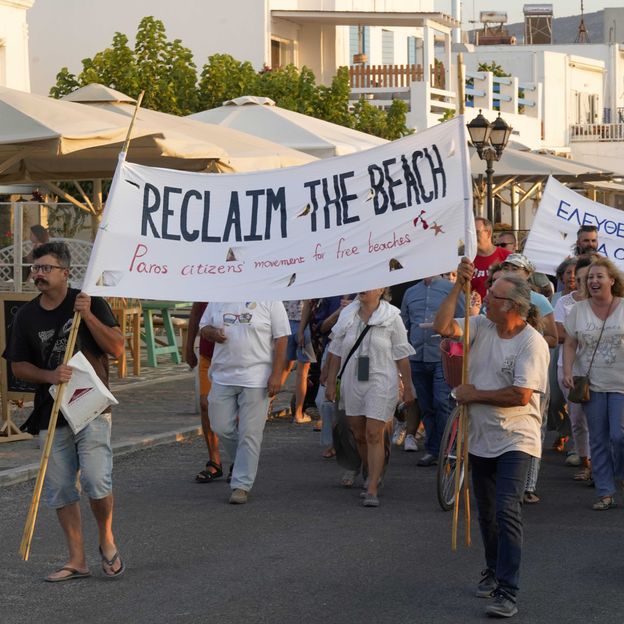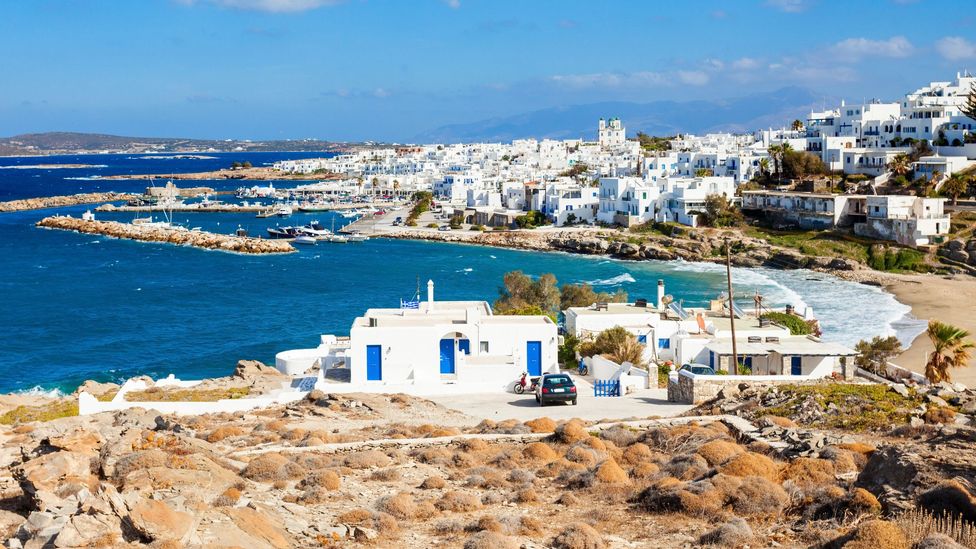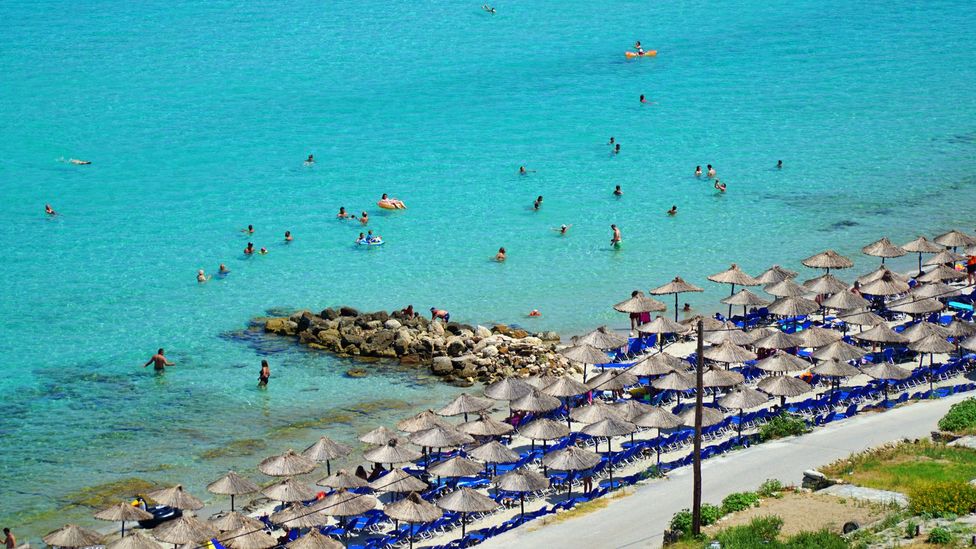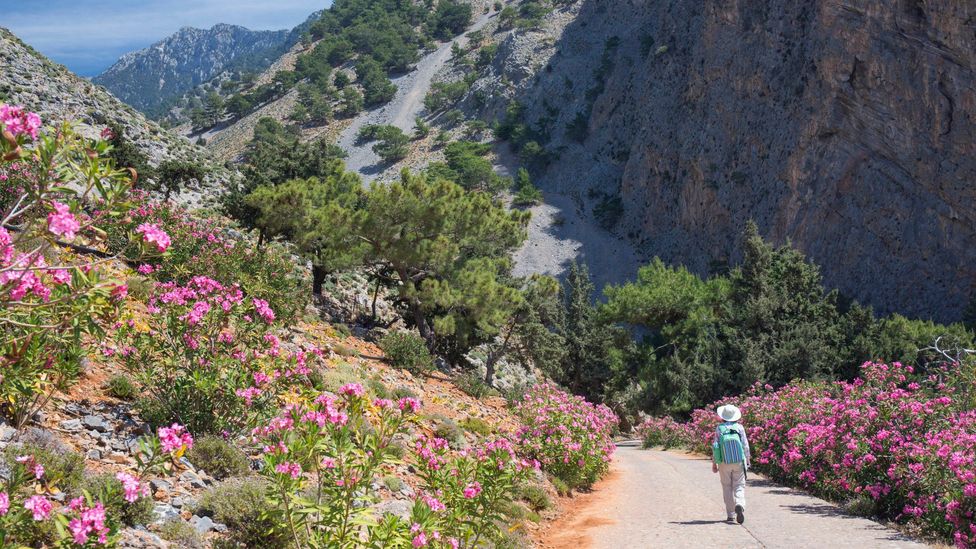It was around sunset on Sunday 3 September in Paros, a popular holiday island in Greece's Cycladic region. A crowd of around 50 were gathered on Parikia beach, close to the island's main port. Behind them, the sky blazed a deep orange over the azure sea. On one side, an iconic Cycladic windmill stood stark against the horizon. On the other, a strip of sun loungers belonging to a beach bar stretched out along the sand.
Even if you've never visited Greece, parts of this scene probably sound familiar. However, on this day, there were also a few unusual details. Three of the attendees were holding up a huge sign saying, "Reclaim the Beach". A man with a loudspeaker stood next to them. As the audience watched, he read parts of the Greek constitution aloud, which states that beaches and other natural areas belong to the country's citizens.
The protest was part of a campaign that media has dubbed the "beach towel revolt", whereby locals are seeking free access to beaches that have been taken over by beach bars and other businesses offering exorbitantly priced sun loungers and umbrellas. While the movement started in Paros, it has now spread all over Greece and even to neighbouring Turkey, with campaigners demanding space to lay down their towels for free.
BBC Travel talked to campaigners and locals to find out what the protests are about, why they're important and what the movement means for both travellers and residents.




